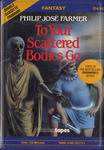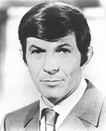
 The Terminal Experiment
The Terminal Experiment
by Robert J. Sawyer; Read by Paul Hecht
7 Cassettes – 9.25 hours [UNABRIDGED]
Publisher: Recorded Books
Date Published: 2003
Themes: Science Fiction / Near Future / Artificial Intelligence / Canada / Mystery /
It started as an experiment in life after death. It ended in death. Dr. Peter Hobson has created a monster. Three of them, in fact. In order to test his theories of immortality and life after death, he has created three electronic simulations of his own personality. The first Hobson has all memory of physical existence edited out. It will simulate life after death. The second Hobson is without knowledge of aging or death. It will simulate immortality. The third Hobson is unmodified. A control. But now all three of them have escaped from Hobson’s computer into the worldwide electronic matrix. And one of them
is a killer . . .
— from the back cover of the paperback
Prior to this production, no Robert J. Sawyer audiobook had ever been produced, so it was with much anticipation that I discovered Recorded Books was set to release the winner of the Nebula and Aurora awards for Best SF Novel of 1995, The Terminal Experiment. And what a fantastic choice it was! It was originally serialized in Analog Science Fiction magazine’s Mid-December 1994 through March 1995 issues as Hobson’s Choice. Sawyer’s story is absolutely original, thoroughly engaging and certainly the best audiobook I’ve listened to this year.
Sawyer is a fantastic structural writer, a craftsman capable of laying out the ideas in just the right order. We get meaty philosophical thought experiments and thus pure HARD SF, and as a bonus, as with most of Sawyer’s novels, a baffling mystery that needs solving. Reader Paul Hecht does a good job narrating, characters come across well and you always know who is speaking. Aside from a very few pronunciation problems it is a perfect reading. I had previously read the paperback version of this novel so upon listening this time I was really able to sit back and enjoy the details much more. And there is a lot of detail to enjoy: in one chapter we get a humorous episode of computer hacking. The computers of Shopper’s Drug Mart (a Canadian drug store chain) are un-hackable, yet a “Food Food” fast food delivery service (a thinly veiled Pizza Pizza) and the Canadian federal government medical database computers are both hacked by a murderous Artificial Intelligence. Social commentary or simply a joke? Either way it’s a funny chapter in what is often a tense and deadly serious murder mystery. We also get a fascinating explication of why funny is funny, it’s all about making new mental connections.
One major/minor quibble I noticed the second time through though; Dr. Peter Hobson our protagonist in collaboration with another scientist, invents a machine capable of mapping all electrical activity in the brain. When a patient dies a the device tracks a mysterious “soulwave” leaving the brain we later learn that it heads off towards Alpha Centauri. All absolutely fascinating, and rather important to all the philosophical explorations and plot developments that follow. But I can’t help but wonder why such a “soulwave” must logically be proof of a soul. Yes it is evidence for a soul, but surely not proof. Hobson has this same doubt, but it eventually passes and he accepts the majority opinion that it does indeed constitute proof of the soul. I guess the problem here comes down to a “who wants to read six chapters on epistemology when it’s the idea that is important” question. And that is why I say it is a major/minor quibble. Ultimately I don’t like such a major conclusion like that just getting away unexamined. But on the other hand any science fiction story worth its salt is allowed one ‘gimme’, a conceit, be it faster than light travel, telekinesis or anything else impossible by what we know of science. Perhaps this is just a case where the conceit isn’t of the usual form, being more of an identification/epistemological problem than an “absolute impossibility” problem.
The packaging for this audiobook is interesting in itself. Recorded Books has decided to market in two formats. Both editions share original commisioned cover art that while visually interesting may be somewhat misleading (see picture above). The library binding, available for additional cost, is of the durable vinyl clamshell type, which makes for attractive and secure storage of tapes. “The Collectors Edition”, the one I got, is less expensive and is essentially just a cardboard box with a printed insert. That may sound rather disappointing, but it isn’t. Audiobook packaging typically comes in two varieties, SUPERB & EXPENSIVE (designed for durable extended usage, typically the type needed for public libraries) and CRAPPY & CHEAP (designed solely to get the product to market cheaply). This “Collector’s Edition” packaging is in-between the two; it is a step above the typical thin cardboard and millimeter-thick plastic of the CRAPPY & CHEAP designs, a compromise between durability, space efficiency and cost. The cardboard is thick, a clear plastic sheet protects the printed insert, and the customizable interior is held rigid by styrofoam inserts. I still prefer the library style bindings, standard with Blackstone Audiobooks and Books On Tape audiobooks but my wallet can’t always afford it.
Quibbles aside, it’s a great audiobook, and my sincere hope is that Recorded Books, Blackstone Audiobooks or Books On Tape see fit to produce another unabridged Robert J. Sawyer novel soon. If they don’t Scott and I might have to do it ourselves, they’re just that good.
posted by Jesse Willis

 A Sound Of Thunder
A Sound Of Thunder The Terminal Experiment
The Terminal Experiment The Man In The High Castle
The Man In The High Castle Virtual Light
Virtual Light To Your Scattered Bodies Go
To Your Scattered Bodies Go Green Hills of Earth/Gentlemen Be Seated by Robert A. Heinlein, read by Leonard Nimoy, Caedmon, 1977
Green Hills of Earth/Gentlemen Be Seated by Robert A. Heinlein, read by Leonard Nimoy, Caedmon, 1977 I type that from memory, hearing Leonard Nimoy’s voice in my mind’s ear. These two stories make my favorites list probably for nostalgic reasons, though Leonard Nimoy is an excellent narrator. This was one of the first audiobooks I listened to as a youth – it was one of the tapes in my local library’s small collection. I found it one day while looking through the few old time radio cassettes. This was also my first exposure to Robert A. Heinlein, and I was hooked. I was struck (and still am) by Heinlein’s ability to make his future so normal to all the people in it.
I type that from memory, hearing Leonard Nimoy’s voice in my mind’s ear. These two stories make my favorites list probably for nostalgic reasons, though Leonard Nimoy is an excellent narrator. This was one of the first audiobooks I listened to as a youth – it was one of the tapes in my local library’s small collection. I found it one day while looking through the few old time radio cassettes. This was also my first exposure to Robert A. Heinlein, and I was hooked. I was struck (and still am) by Heinlein’s ability to make his future so normal to all the people in it.